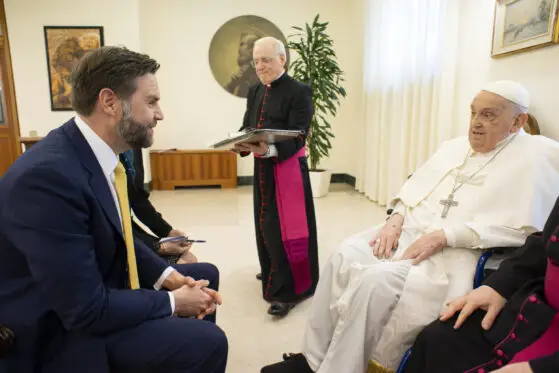
U.S. Sen. Richard Durbin (D-IL), joined by Sens. Patrick Leahy (D-VT) and Jim Jeffords (I-VT), have introduced the first-ever Senate bill to ensure that federal juries hear the full story when medical marijuana patients and providers, operating legally under state law, are tried on federal marijuana charges.
S. 2989 is similar to H.R. 1717, the “Truth in Trials Act,” introduced by a bipartisan House coalition last year and inspired in part by the case of Ed Rosenthal. In January 2003, Rosenthal was found guilty of felony marijuana cultivation charges by a jury that was not allowed to consider that the marijuana was for medical use by seriously ill patients and was grown with the authorization of the city of Oakland, California.
And when the jury found out they had just unknowingly sentenced a medical marijuana grower to prison, not some street-dealing drug kingpin, they were mighty pissed:
In an extraordinary condemnation of federal drug war tactics, five jurors who convicted medical cannabis grower Ed Rosenthal of federal marijuana cultivation and conspiracy charges, held a press conference yesterday (Tuesday, Feb. 4) to apologize and to call for a new trial.
“I fail to understand how evidence and testimony that is pertinent, imperative and representative to state government policy, as well as doctor and patient rights, and indeed your own family, are irrelevant to this case,” said jury foreman Charles E. Sackett III.
When former Oakland city council member Nate Miley testified that he met Rosenthal, “in the context of Prop. 215,” the judge instructed the jury to ignore the comment, and took over the questioning of Miley himself.
“I wondered why the defense portion of your case was so brief as to almost be non-existent?” asked Sackett. “We as a jury was unaware that your counsel was being denied the opportunity to present most of your evidence and outside testimony.”
“It is the most horrible mistake I have ever made,” said juror Marney Craig. “I feel like we were sheep, we were manipulated.”
One of the jurors who spoke against the verdict was Pam Klarkowski, a registered nurse who said she has attended to at least one medical marijuana patient. Klarkowski acknowledged that medical cannabis provides effective relief for cancer and AIDS patients, and said that convicting growers makes it more difficult for them to get their medicine. “I do apologize to Ed and his family and to all the patients for whom this will make their lives very difficult,” said Klarkowski. “I feel as if we were ramrodded in a way, and not given all the evidence involved to make an educated decision.”
Matt Gonzalez, president of San Francisco’s Board of Supervisors, or city council, said jurors in cases like Rosenthal’s should know that they can nullify a verdict if they find the law is unjust. Craig said she and her fellow jurors had no idea that they had power to disregard the federal law, because the judge never told them. “We were good little girls and boys, and we did what he said because we trusted the system,” said Craig. “We felt so intimidated by the way the trial proceeded.”
“What the judge did in this case is not only violate the spirit of the constitution, he violated the letter of common law,” said Gonzalez. [The jury’s] will was not carried out, and their rights were violated by this court.”






